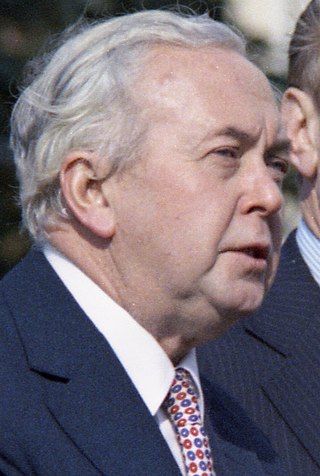1972 manifesto
(click to enlarge each page)
The Australian Commonwealth Party was formed in Sydney to contest the 1972 federal election, on a platform of wide social and administrative reform. The sole candidate, Max Fabre, sought to stand against William McMahon in the seat of Lowe but his nomination was refused over a deposit technicality. A dramatic eleventh-hour action in the High Court went against Fabre and the party. [1] [2] The party's campaign manifesto was written and authorised by poet Les Murray whose unabashed departure from the goals and language of conventional politics generated widespread publicity and prefigured the later emergence of visionary, environment-oriented parties like the Australian Democrats and Greens. The manifesto announced:
The Australian Commonwealth Party is an entirely new political association, non-authoritarian, non-elitist, bound together by the mutual loyalty and common commitment of members. [The party] represents a rising of sensitivity and a restoration of grace. It seeks to reinstate qualitative values in the world in order to counter and, in the end, overcome the entrenched tyranny of quantity. It is thus the sworn enemy alike of divisive political techniques, of the mass solutions of doctrinaire economics and of rule by threat. As against all these, it espouses the higher pragmatism of vision. [3]
The party went on to make a public declaration that "statecraft, not politics [is] the proper function of government" and urged that Australia "achieve true sovereignty and secure the constitutional appointment by universal franchise of an independent Australian head of state." [4] In a letter to The Bulletin in 1972, Les Murray wrote: "Australia will be a great nation, and a power for good in the world, when her head of state is a part-Aboriginal and her prime minister a poor man. Or vice versa." [5]
Though never formally disbanded, the Australian Commonwealth Party did not contest any other election nor seek party registration under later legislation. Its last public action was a rebuke delivered to prime minister Gough Whitlam in July 1974 over the removal of "Commonwealth" from Australia's paper currency. The open letter, signed by the party's chairman Max Fabre, enquired "Has [the PM] forgotten that Australia was a Commonwealth when the British Empire was in short pants?" [6]
(click to enlarge each page)

The Australian Labor Party (ALP), also simply known as Labor, is the major centre-left political party in Australia and one of two major parties in Australian politics, along with the centre-right Liberal Party of Australia. The party has been in government since being elected at the 2022 federal election, and with political branches in each state and territory, they currently form government in New South Wales, Queensland, South Australia, Victoria, Western Australia, the Australian Capital Territory, and the Northern Territory. As of 2023, Tasmania is the only state or territory where Labor forms the opposition. It is the oldest continuous political party in Australian history, being established on 8 May 1901 at Parliament House, Melbourne, the meeting place of the first federal Parliament.

Edward Gough Whitlam was the 21st prime minister of Australia, serving from 1972 to 1975. He held office as the leader of the Australian Labor Party (ALP), of which he was the longest-serving. He was notable for being the head of a reformist and socially progressive administration that ended with his removal as prime minister after controversially being dismissed by the governor-general of Australia, Sir John Kerr, at the climax of the 1975 constitutional crisis. Whitlam is the only Australian prime minister ever to have been removed from office against his will.

The Liberal Party of Australia is a centre-right political party in Australia. The party is one of the two major parties in Australian politics, the other being the Australian Labor Party. The Liberal Party was founded in 1944 as the successor to the United Australia Party, and has since become one of the most successful political parties in Australia's history.

John Malcolm Fraser was an Australian politician who served as the 22nd prime minister of Australia from 1975 to 1983. He held office as the leader of the Liberal Party of Australia.

The prime minister of Australia is the head of government of the Commonwealth of Australia. The prime minister heads the executive branch of the federal government of Australia and is accountable to federal parliament under the principles of responsible government. The prime minister is the chair of the federal cabinet and the national cabinet and a member of the federal executive council. The current prime minister is Anthony Albanese of the Australian Labor Party, who assumed the office on 23 May 2022.

Sir William McMahon was an Australian politician who served as the 20th prime minister of Australia from 1971 to 1972. He held office as the leader of the Liberal Party of Australia. He was a government minister for over 21 years, the longest continuous service in Australian history.

The 1975 Australian constitutional crisis, also known simply as the Dismissal, culminated on 11 November 1975 with the dismissal from office of the prime minister, Gough Whitlam of the Australian Labor Party (ALP), by Governor-General Sir John Kerr, who then commissioned the leader of the Opposition, Malcolm Fraser of the Liberal Party, as prime minister. It has been described as the greatest political and constitutional crisis in Australian history.

Sir John Robert Kerr, was an Australian barrister and judge who served as the 18th governor-general of Australia, in office from 1974 to 1977. He is primarily known for his involvement in the 1975 constitutional crisis, which culminated in his decision to dismiss the incumbent prime minister Gough Whitlam and appoint Malcolm Fraser as his replacement, unprecedented actions in Australian federal politics.

Francis Michael Forde was an Australian politician who served as the 15th prime minister of Australia from 6 to 13 July 1945. He was deputy leader of the Australian Labor Party from 1932 to 1946 and served as prime minister in a caretaker capacity following the death of John Curtin. He is the shortest-serving prime minister in Australia's history.

The February 1974 United Kingdom general election was held on Thursday 28 February 1974. The Labour Party, led by Leader of the Opposition and former Prime Minister Harold Wilson, gained 14 seats but was seventeen short of an overall majority. The Conservative Party, led by incumbent Prime Minister Edward Heath, lost 28 seats. That resulted in a hung parliament, the first since 1929. Heath sought a coalition with the Liberals, but the two parties failed to come to an agreement and so Wilson became Prime Minister for a second time, his first with a minority government. Wilson called another early election in September, which was held in October and resulted in a Labour majority. The February election was also the first general election to be held with the United Kingdom as a member state of the European Communities (EC), which was widely known as the "Common Market".

Donald Leslie Chipp, AO was an Australian politician who was the inaugural leader of the Australian Democrats, leading the party from 1977 to 1986. He began his career as a member of the Liberal Party, winning election to the House of Representatives in 1960 and serving as a government minister for a cumulative total of six years. Chipp left the Liberals in 1977 and was soon persuaded to lead a new party, the Democrats who, he famously proclaimed in 1980, would "keep the bastards honest". He was elected to the Senate on 10 December 1977 and led the party at four federal elections. From 1983 it held the sole balance of power in the Senate.

Robert Murray Hill is a retired Australian politician. He is an Adjunct Professor in Sustainability and Co-Director of the Alliance 21 project at the United States Studies Centre at the University of Sydney. He is also a Commissioner of the Global Ocean Commission.

The Liberal–National Coalition, commonly known simply as the Coalition or the LNP, is an alliance of centre-right political parties that forms one of the two major groupings in Australian federal politics. The two partners in the Coalition are the Liberal Party of Australia and the National Party of Australia. Its main opponent is the Australian Labor Party (ALP); the two forces are often regarded as operating in a two-party system. The Coalition was last in government from 2013 to 2022. The group is led by Peter Dutton, who succeeded Scott Morrison after the 2022 federal election.

Damian Kevin Drum is an Australian politician who has represented Murray and Nicholls in the Australian House of Representatives since the 2016 federal election as a member of The Nationals. Drum served as the Assistant Minister to the Deputy Prime Minister in the Second Turnbull Ministry between 20 December 2017 and 5 March 2018.

The Whitlam government was the federal executive government of Australia led by Prime Minister Gough Whitlam of the Australian Labor Party. The government commenced when Labor defeated the McMahon government at the 1972 federal election, ending a record 23 years of continuous Coalition government. It was terminated by Governor-General Sir John Kerr following the 1975 constitutional crisis and was succeeded by the Fraser government—the sole occasion in Australian history when an elected federal government was dismissed by the head of state.

Australia is a federal parliamentary constitutional monarchy. The country has maintained a stable liberal democratic political system under its Constitution, the world's tenth oldest, since Federation in 1901. Australia is the world's sixth oldest continuous democracy and largely operates as a two-party system in which voting is compulsory. The Economist Intelligence Unit rated Australia a "full democracy" in 2022. Australia is also a federation, where power is divided between the federal government and the states and territories.

The 1974 Australian federal election was held in Australia on 18 May 1974. All 127 seats in the House of Representatives and all 60 seats in the Senate were up for election, due to a double dissolution. The incumbent Labor Party led by Prime Minister Gough Whitlam defeated the opposition Liberal–Country coalition led by Billy Snedden. This marked the first time that a Labor leader won two consecutive elections.

Simon John Birmingham is an Australian politician who has been a Senator for South Australia since 2007. A member of the Liberal Party, he served in the Morrison government as Minister for Finance from 2020 to 2022 and as Minister for Trade, Tourism and Investment from 2018 to 2020. He previously served as Minister for Education and Training in the Turnbull government from 2015 to 2018, and as a parliamentary secretary and assistant minister in the Abbott government.

The Fraser government was the federal executive government of Australia led by Prime Minister Malcolm Fraser. It was made up of members of a Liberal–Country party coalition in the Australian Parliament from November 1975 to March 1983. Initially appointed as a caretaker government following the dismissal of the Whitlam government, Fraser won in a landslide at the resulting 1975 Australian federal election, and won substantial majorities at the subsequent 1977 and 1980 elections, before losing to the Bob Hawke–led Australian Labor Party in the 1983 election.
The Australian Labor Party split of 1955 was a split within the Australian Labor Party along ethnocultural lines and about the position towards communism. Key players in the split were the federal opposition leader H. V. "Doc" Evatt and B. A. Santamaria, the dominant force behind the "Catholic Social Studies Movement" or "the Movement".